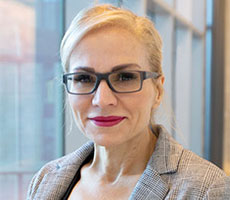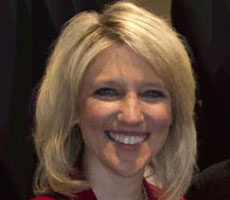Reconceptualizing the One-time Approach to DEI Work
Building a community practice in diversity, equity, and inclusion
Robert | Family Medicine Dec 4, 2020
About the authors:
Nelia Viveiros is Interim Vice Chancellor for Diversity, Equity & Inclusion and Associate Vice Chancellor for Academic Operations Office of the Provost, Academic & Student Affairs,, University of Colorado, Denver.
And, Amy Bonomi is Professor & Director, Women’s Leadership Institute at Michigan State University.


Nelia Viveiros, EdD, LLB Amy Bonomi, PhD, MPH
We recently sent a congratulatory note to the more than 500 faculty and staff who participated (as the inaugural group!) in the University of Colorado Denver | Anschutz Medical Campus’ Equity Certificate Program. The certificate program covered unconscious bias and microagressions in virtual settings (module 1); frameworks for mitigating the impact of unconscious bias and microaggressions (module 2); equity topics/areas related to inclusionary practices (module 3); and leading with an equity lens (module four). Programs like these – which engage meaningful interaction and reflection with the audience – are needed more than ever. Given the incredible engagement of our first ever cohort, including strong representation from the Department of Family Medicine, we know that many of you believe this, as well.
We’re writing to share a few thoughts as you continue building your community of practice in diversity, equity and inclusion (DEI).
1. DEI training is ongoing. As we discussed in the Equity Certificate Program, DEI trainings are more than a simple one-time injection. It is not possible to learn new ideas and be fully ready to address the hard, daily work to improve individually and organizationally. As we move through seeing ourselves differently as behavioral specialists in DEI spaces, we need to commit to the five practices we outlined in module 4 (leading through an equity lens) – commit, build capacity, have courage, question and challenge. As well, we must have patience with ourselves and others as we try on new behavioral practices aimed at improving equity.
2. DEI is a community of practice. Think of yourselves as a community of practice—a group of people who share a concern or passion for something they do, learn how to do it better and interact regularly. We were excited to see so many of you connecting with each other in the Zoom chat during the Equity Certificate Program; this is the start of a community of practice, which we hope you will continue. In these communities of practice, individuals and organizations must work together. For example, in the Equity Certificate Program, at the individual level, we examined how to use Ijeoma’s Oluo’s strategies for interrupting microaggressions—by stressing the importance of saying what happened and the importance of asking uncomfortable questions. At the institutional level, we highlighted Dr. Ibram X. Kendi’s focus on problematic policies that create the conditions for systemic racism. And, we discussed Tema Okun’s antidotes to white supremacy culture, such as understanding that defensiveness often stems from fear and the need for improved competency and skills in navigating spaces of inequity.
3. Your leadership practice sets the tone. No matter where you “sit” within the organization (whether faculty, staff, student, alumni), you are leading. Remember that as leaders, you influence others and therefore have a unique opportunity to model equity in all that you do. This ties back to the leadership practice principles we reviewed during the Equity Certificate Program -- commit, build capacity, have courage, question and challenge – and to have patience with ourselves and others as we try on new behavioral practices aimed at improving equity.
Our work in DEI and building a more just society is not easy, but collectively we can enact individual and institutional culture change.